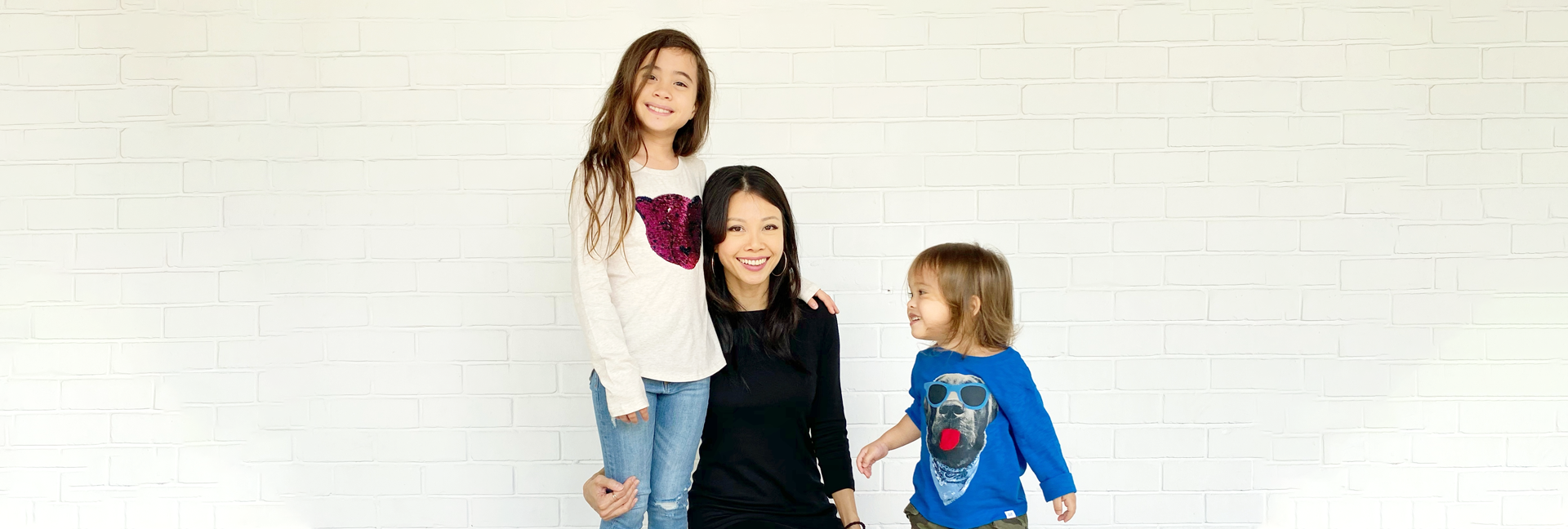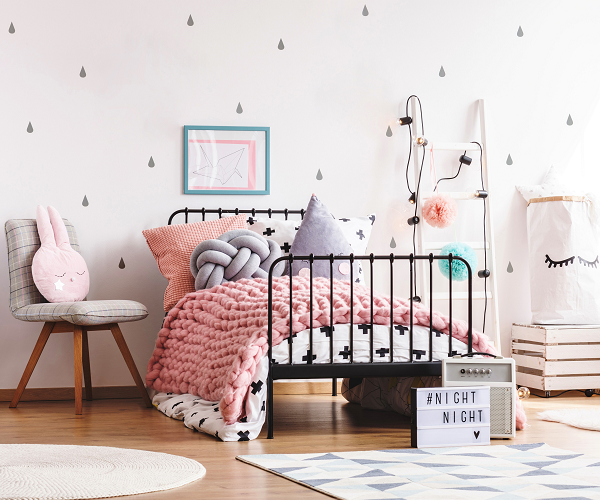
Finding a healthy balance between parenting and work commitments is a common challenge parents face.
There’s no universal formula for juggling both parenting and work commitments. It varies for everyone, because every family situation is different and unique. And it’s also subject to alteration as your work, family, your child’s developmental progress and other responsibilities change.
With realistic expectations, and some trial and error, you can find various techniques, best suited for you and your child, that can help achieve that balance between career and parenting.
Celebrity mum Jamie Yeo shares her own personal tips and tricks on how she is able to strike a balance between her hectic job schedule, letting her 10-year-old daughter, Alysia, unwind over the school holidays while ensuring that Alysia continues learning in various ways in the process.

1. Make Time for Your Child
With the cessation of school lessons and programmes, your child may crave your attention and affection over the holidays.
Use this as an opportunity to switch off from your own worries and listen to what your child has to share.
“I’m fortunate to be able to work from home, plus, my work sometimes means family-oriented events, which the kids love,” Jamie Yeo remarked.
“Over the December school holidays, we attended film screenings and Christmas type events with fun activities like ice-skating, so Alysia has had her fair share of quality time spent with me, while I’m technically still working.”
If your professional commitments demand much of your time outside work hours, try setting aside some precious family time; make it a part of your routine.
You may even organise family movie nights. This is the simplest family bonding activity, with minimal effort required to plan and an average duration of only two hours per movie night.
Watching movies together help to improve emotional bonding between family members, foster camaraderie, promote togetherness and elicit lively discussions. Family movie night is a great tradition to have!
You can keep your family night simple, or if you want, you can take it to the next level by making a trip out of it. Take your child out to a nearby grocery or convenience store and allow them to choose several snacks so that they can enjoy the evening to the fullest.

You may even organise family movie nights. This is the simplest family bonding activity, with minimal effort required to plan and an average duration of only two hours per movie night.
Watching movies together help to improve emotional bonding between family members, foster camaraderie, promote togetherness and elicit lively discussions. Family movie night is a great tradition to have!
You can keep your family night simple, or if you want, you can take it to the next level by making a trip out of it. Take your child out to a nearby grocery or convenience store and allow them to choose several snacks so that they can enjoy the evening to the fullest.
After which, you can snuggle up on the sofa with your child and pick a movie to watch. However, with so many movie options out there, it can be difficult to find a good family-friendly film.
We have collated 8 educational films that you can select from on Netflix to watch with your child during family movie night. Not only are these films a great source of entertainment and packed with many important life lessons, they can also act as an English language learning medium for your child.
These movies that we have curated in this list are fun, meaningful, audiovisual and use authentic language. Alongside learning how to converse fluently and eloquently, your child can pick up new words or phrases that can be used both in the real-world context and in their academics. By expanding your child's vocabulary base through films, it allows them to apply the words into their English oral and written examinations.
Related: Netflix and Child: 8 Educational Films for Your Young Learner This School Holiday

2. Ingrain Responsibility in Your Child
Teaching responsibility to your child helps them to be successful in school and in life.
Children who are taught about responsibility generally learn how to work better with others, gain skills needed to manage, organise and complete tasks, and may even pick up new skills or improve on existing skills.
Parents can also benefit from teaching responsibility by sharing the workload and delegating tasks to their children, allowing more time for family activities.
Give yourself a breather by allowing your child to support your chores, tasks and goals. At times it will feel like you can do the job better, but trust that your child is fully capable of getting things done just as well.
Jamie Yeo shares: “We’ve made it a point to cultivate some sort of tidiness over the holiday. In particular, Alysia’s room has to be consistently tidy. Daddy does a ‘room inspection’ most evenings to make sure her room is maintained.”
Another way that Jamie Yeo teaches her daughter the value of responsibility is by involving Alysia with her day-to-day activities and allowing Alysia to help her out with her ‘to-do’ list.
During the December school holidays, Jamie Yeo’s ‘to-do’ list consisted of mailing out Christmas cards to loved ones, and Alysia was more than eager to help out with writing the greetings and well-wishes for her cousins and friends.
Entrusting responsibilities to your child give them a sense of ownership and can help them feel important, reliable, independent, and aware. Try to be patient as your child learn the skills to do tasks properly, such as making a bed or helping out with other household chores.
Furthermore, getting your child involved in your plans and ideas can boost their confidence in accomplishing tasks in the future, and give them a sense of satisfaction and fulfilment.

3. Inculcate Independence in Your Child
Your physical presence may be comforting to your child but the metaphorical umbilical cord has to be snipped at some point.
It is healthy to break your child’s dependence on you by introducing exciting activities they can do without you. Observe what your child can do already, and build on this.
Retreats, for example, can be a fun way to give your child fresh memories and build new skills, as Jamie Yeo recounts: “Aly attended a 5 -day (drop off) mindfulness camp at the start of the December holidays. It focused on teaching the kids mindfulness, meditation, how to quiet their minds. She came back with meditation tips for us and even taught us how to eat mindfully.”
Jamie Yeo strongly advocates playdates too and believes that they can be both pleasant and educational for children.
“I’ve set up playdates for Aly with various friends. I would drop them off at the bakery for half an hour and leave them with $20. They have to order their own snacks and pay with cash, making sure they get the correct change.”
That’s quite a fun and engaging way to get your child to practise their mathematical skills!
In school, how and what your child learns is largely decided by their teachers, who are in turn constrained by the standard curriculum. Your child may show more proclivity towards learning if they are given the opportunity of choosing what to learn, and how to go about doing it.
Allowing your child to explore the world or learn independently in their own time doesn’t necessarily have to involve a full-blown outdoor activity far away from home. It can come in the form of picking out a documentary to watch or selecting a book to read.

4. Participate in Fun Learning Activities with Your Child
There are countless educational activities that both you and your child can both participate in, which allows you to bond with your child while maintaining their learning momentum over the school holidays.
Make the most out of the school holidays by taking this time to organise, conducting and partaking in engaging activities with your child that contain educational elements.
This way, your child continues learning while everyone gets to have a bit of fun from the comfort of your own home.
“Over the December holidays, we baked a Christmas pie using TLL’s home-worksheet. This particular home-worksheet is essentially a recipe for baking a Christmas pie. The twist is that in place of the exact quantity of ingredients listed, there were mathematical equations to solve. Aly had to flex her mathematical skills to get the amount of ingredients right and had a blast doing it,” Jamie Yeo recalled.
If you are looking for similar hands-on learning activities to engage your child in, you can take your pick from our Home-Work series which puts the home in homework. Let your child apply and revise academic concepts from home through a line-up of interactive exercises ranging from making slime to baking cookies here.

Striking a Balance
Establishing a balance between work and play is one of the cornerstones of TLL's modus operandi. This is why play and learning go along hand in hand when it comes to building our students’ academic knowledge and skillset.
A variety of hands-on activities like games, puzzles, experiments, and friendly competitions are integrated into our lessons to let every child experience the tangible joy of learning.
Click here to find out more about how we balance study and play in the classroom. Because "all work and no play makes Jack a dull boy", right?
The Learning Lab is now at locations. Find a location that suits your needs.
If you have any questions about our range of programmes or class schedules, you may contact us at 6733 8711 or drop us an email at enquiry@thelearninglab.com.sg.


